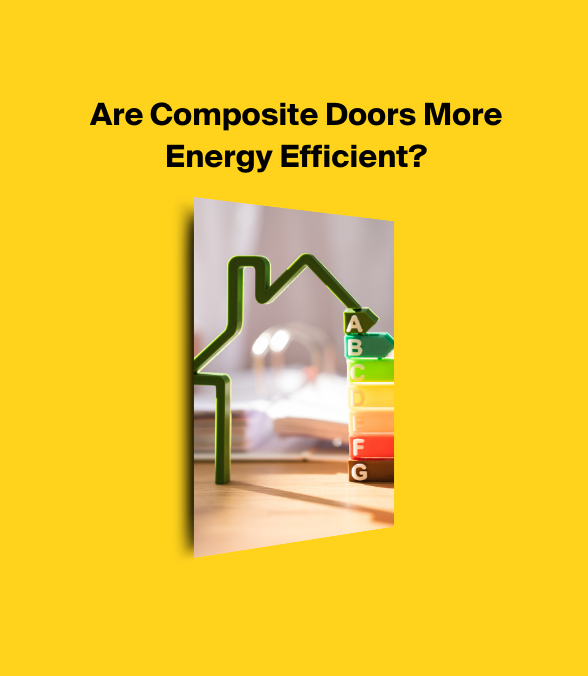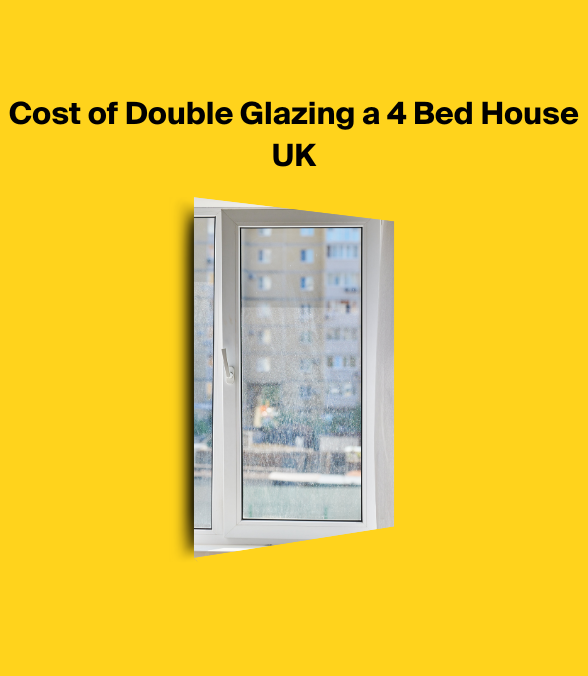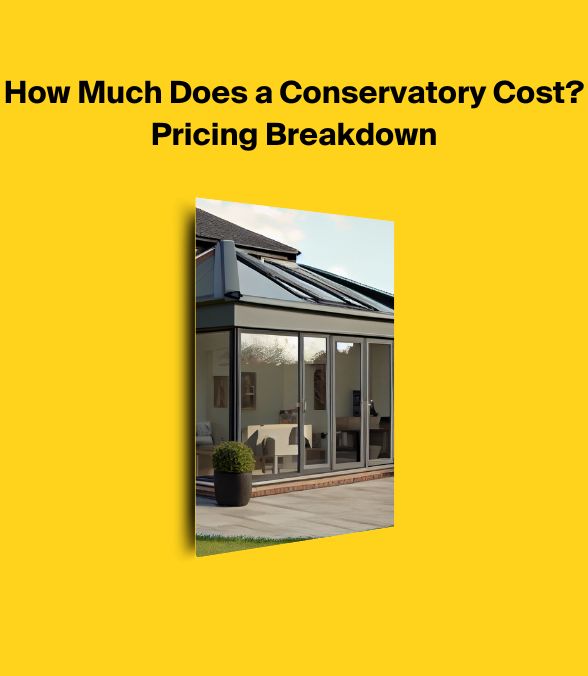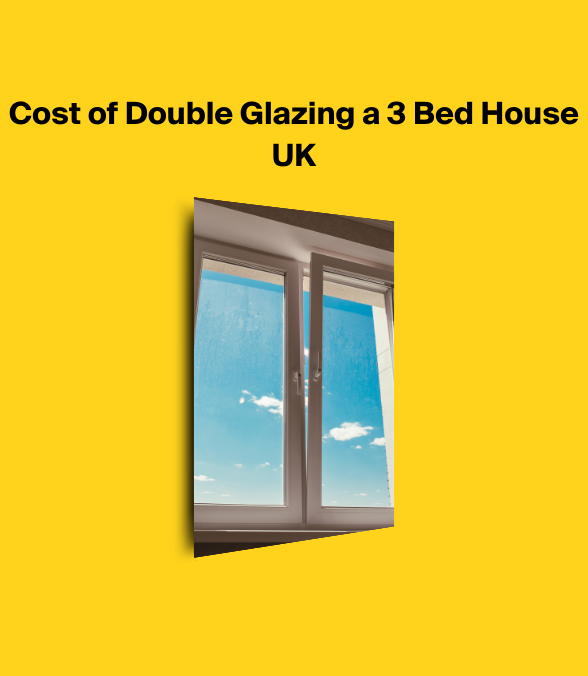Are composite doors more energy-efficient than other doors?
Whether building a house or just renovating and giving your home a facelift, choosing the right front door is vital.
If you're looking for a stylish door that won't require too much maintenance, a new composite door might be just what you've been looking for!
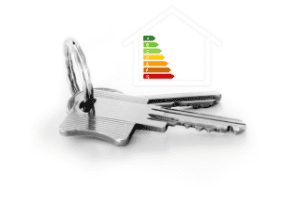
You can design and build energy-efficient composite doors online by using the link below:
You might be wondering whether or not a composite door is the right choice for your home, how it differs from wooden and aluminium doors, or whether it is better than uPVC doors.
All things considered, though, composite doors are the most energy-efficient ones on the market.
Energy-efficient doors are a must as an investment for your home, especially during the cold seasons when they can help lower your energy bills, making them exceedingly environmentally friendly.
By their very nature, composite doors are a more thermally efficient, energy-efficient and secure choice for your doors due to the robust materials they're manufactured from. Find out more about energy-efficient composite doors below.
What Are Composite Doors?
The point of composite material is that it's better or more robust than the individual materials combined to create it.
A modern composite door is made from a combination of materials to make a much better door than a traditional wooden door.
A composite door is typically made from some combination of PVC, insulating foam, wood, and glass-reinforced plastic.
Composite doors are becoming increasingly popular because they look like wooden doors and have that beautiful finish with none of the cons.
A composite door won't warp, bend, fade, or crack, offering more thermal and energy efficiency than an aluminium or uPVC door. Visit our blog for more reasons why composite doors are the best on the market, ready to buy online.
What Makes Composite Doors Energy Efficient?
Composite doors typically have an exterior made from a layer of glass-reinforced plastic about 2mm thick. Glass-reinforced plastic is another name for fibreglass, a challenging and weatherproof material.
The doors undergo double-glazing to ensure they are completely weatherproof and well-insulated.
This outer frame is then fused to an internal skeleton made from uPVC. This frame is then attached to another inner frame made from hardwood. This structure makes the door sturdy and stable and boosts its thermal efficiency.
The space inside the door is then injected and filled with a polyurethane foam core for insulation. Composite doors can also be made with a solid timber core instead. Our composite doors have a solid timber core to ensure you have the most insulated door possible.
How to Pick an Energy-Efficient Door
A good rule of thumb when picking front doors is to check the U-value of the doors. A U-value gives you an idea of how much heat gets lost through the door; the lower the U-value, the more energy-efficient the door is.
Current regulations stipulate that replacement doors must have a low U-value of 1.8 W/m² or lower.
Composite doors, particularly ours, typically have a very low U-value, making them some of the most energy-efficient doors on the market currently!
Another thing to consider when picking a front door is the energy rating. Energy ratings take the U-Value into consideration, as well as the air leakage and solar gain. Door energy ratings are similar to those on a fridge; they range from A to G.
An A rating of your composite door means it's very energy efficient, while a G means it's not. Ideally, your door should have a rating better than an E if it's genuinely energy efficient.
On top of this, you can also insulate a front door yourself with some DIY methods, which would make an already energy-efficient composite door even more energy-saving.
Why Is a Composite Door the Best Choice?
An estimated 35% of heat loss in the home occurs through the gaps in and around doors and windows and through the walls. This figure can be reduced by using draught-proofing measures, but buying energy-efficient composite doors is less costly in the long run.
While a wooden door is naturally insulated, there's the ever-present risk that it will warp and shift, which creates gaps through which cold air can enter the house. This makes your home less thermally efficient than it could and should be.
A composite door is more thermally efficient than a uPVC door, an aluminium bifold door, or a wooden door, as heat can still easily pass through these materials. This is partly because composite doors are generally twice as thick as standard uPVC doors.
The glass-reinforced plastic layers on the outside of the composite door provide an excellent barrier against any heat loss and ensure less heat is coming in.
These layers also make the door weatherproof and impervious to any temperature changes, which can damage the door, cause it to warp, or lead to it no longer fitting the frame correctly.
The thick wooden core in our composite doors provides even more insulation and makes your door more energy efficient.
The sturdiness and durability of these materials mean that the wood at the centre is impervious to the effects of the weather and, therefore, won't buckle or warp, leaving gaps in the door for potential heat loss.
So, with this door, you won't lose heat through the door itself or around its frame.
A composite door will lower energy bills because you'll be less reliant on your central heating system. You won't have to keep your central heating unit on for as long or as high a setting because your thermal efficient composite door will keep all the heat inside.
Conversely, you won't have to use your cooling unit that often either, as, during hot weather, the thermally efficient composite door will ensure that no cold air escapes your house. At the time, it'll ensure that less heat enters your home.
You can learn more about the pros and cons of composite doors with our guide here.
FAQs
What are some other benefits of composite doors?
- Security: Composite doors are safer and more secure than other doors. The layers and materials in the door make it very thick, solid, and impact-resistant.
- Locking: Typically, composite doors come equipped with multi-point locking systems and more durable handles, making it harder for people to break in via the front door.
- Durability: Composite doors look better for longer because they are weatherproof, meaning the finish won't fade or chip due to sun or rain. You won't have to worry about replacing your door because it won't warp and buckle.
- Low maintenance: Your new composite door won't ever need to be painted or touched up, and you can get it in various styles and colours. As a bonus, it reduces noise levels.
Why Choose Us?
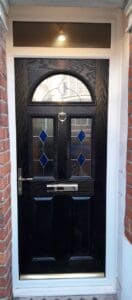
Our composite doors are secure and weatherproof due to our TriSeal frame and a highly advanced, multi-latch deadbolt auto-lock locking system.
Our locks feature a 3-star rated ABS cylinder; all our hardware is stainless steel. Our energy-efficient composite doors boast a low energy rating of 1.4 W/m² u-Value.
We offer composite doors in over 250 InvisiEdge colour combinations with chamfered or sculptured frames. The InvisiEdge system ensures a seamless edge to the door while keeping out 100% of moisture.
Get the look and feel of a traditional wooden door with all the energy efficiency of a uPVC door and more. We have the right energy-efficient composite door for you, no matter what look or style you're going for!

